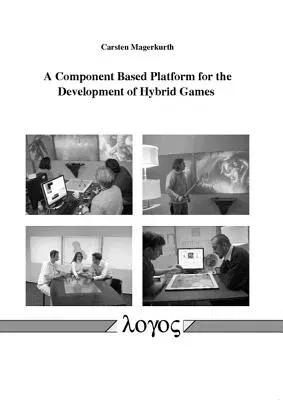This dissertation contributes a development and runtime platform to
facilitate the realization of pervasive computing applications in the
domain of hybrid games. The developed platform consists of several
physical and graphical user interfaces that effectively link properties
from the real and the virtual world. These user interfaces include
sentient game boards, gesture based interaction devices, smart dice
cups, and other spatial or associative tangible interfaces. The
respective software platform dynamically couples and coordinates
interfaces and interaction devices. In contrast to most existing
approaches, it supports consistency alignments across virtual and
physical domains and is highly adaptive, allowing for physical
reconfiguration during runtime. Game rules and mechanics are modeled
independently of the concrete interaction devices and are likewise
reconfigurable during runtime. Several proof-of-concept prototypes
demonstrate that the development of hybrid gaming applications is
greatly simplified with the platform presented in this dissertation. In
order to prove the validity and goals of the platform, three formal
evaluations with end-users were conducted, a formative one at the
beginning of the requirements analysis and two summative ones after the
deployment of final prototype applications.

